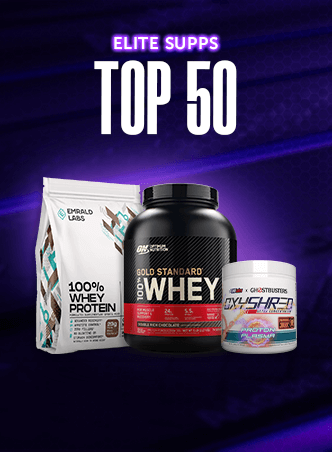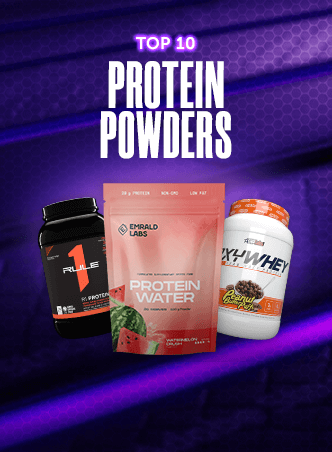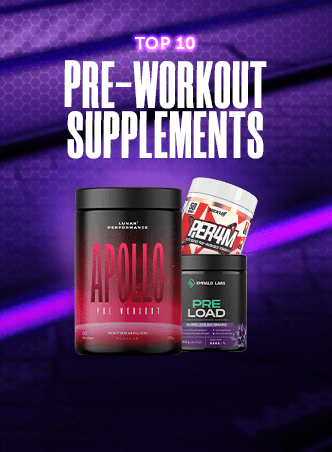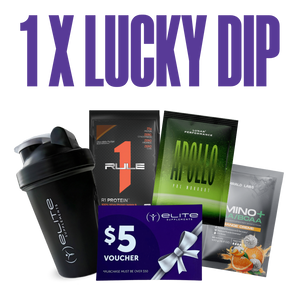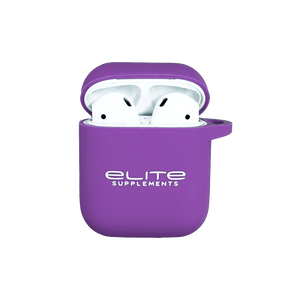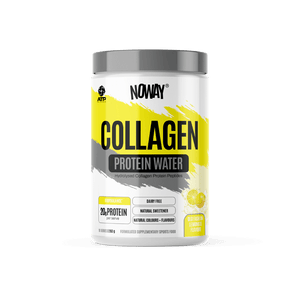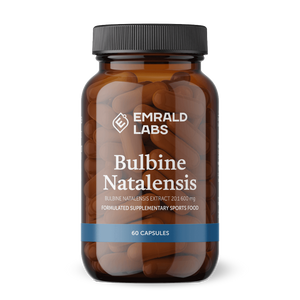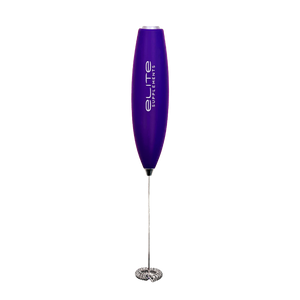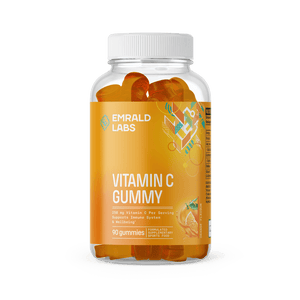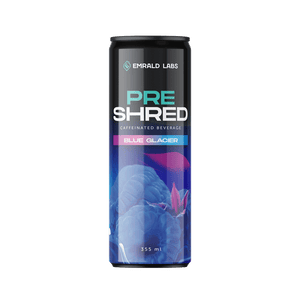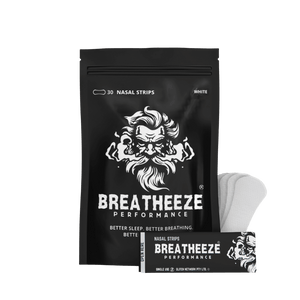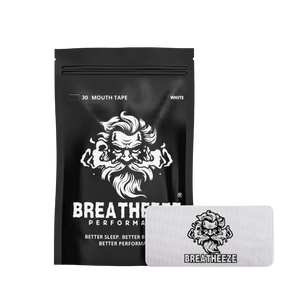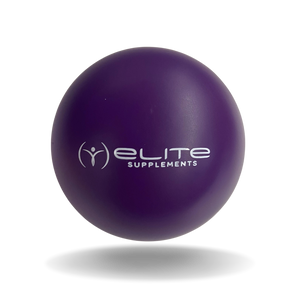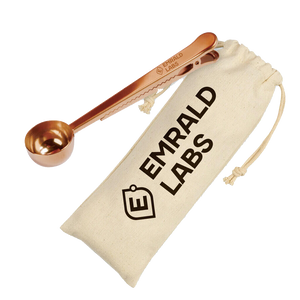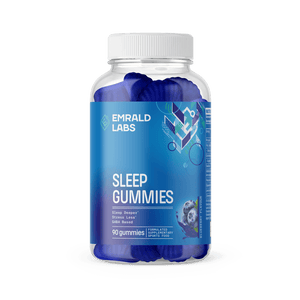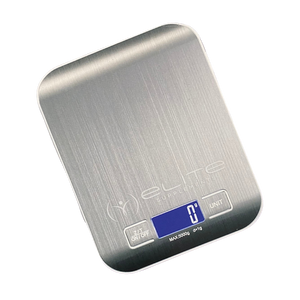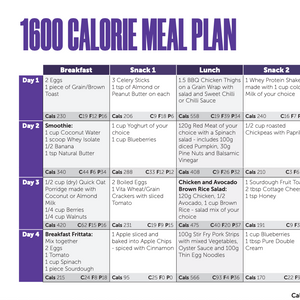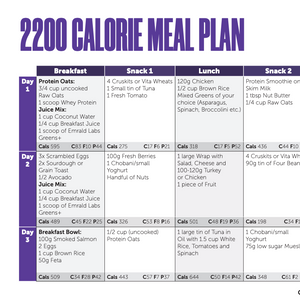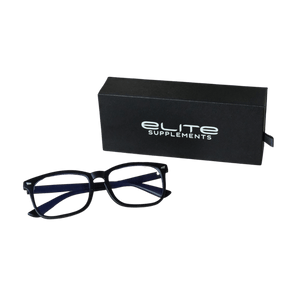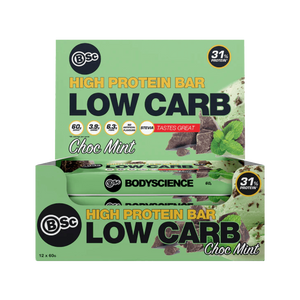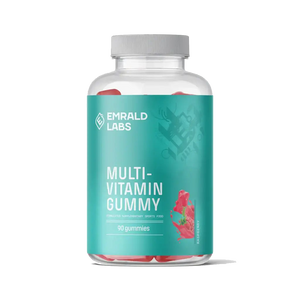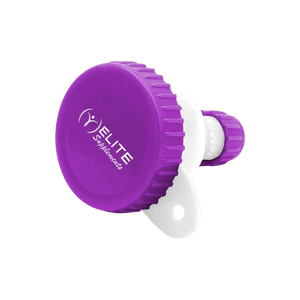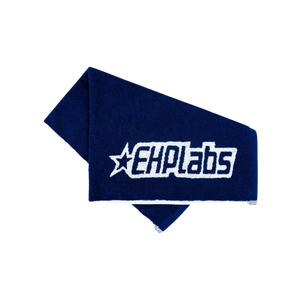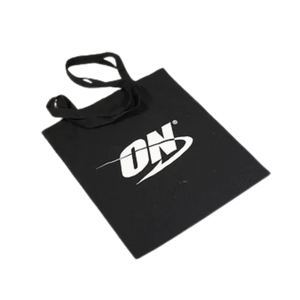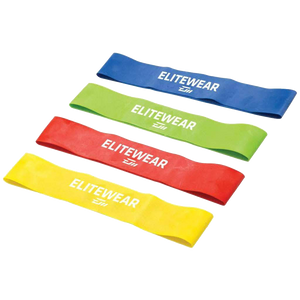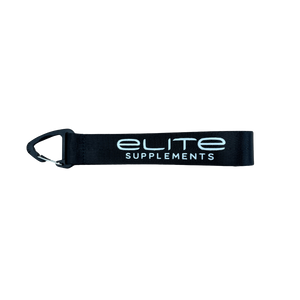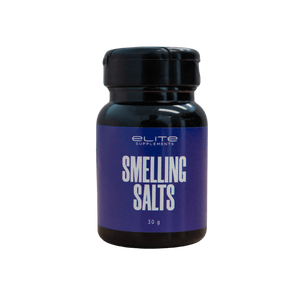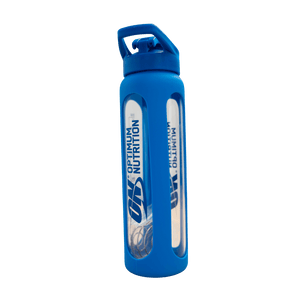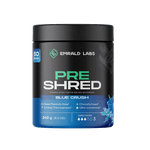
Collection: Vegan Protein Powder
Bringing you the best plant-based protein powder at Elite Supps
Vegan protein powder has hit the fitness supplement market at an incredible rate, fascinating and exciting gym enthusiasts who are lactose intolerant or eat a plant-based diet. With over a decade of experience in the fitness and supplement space, Elite Supplements is here to help you on your fitness and health journey by providing a premium and comprehensive range of international and Australian vegan protein powder supplements.
Depending on your fitness goals, you may be looking to boost your daily protein intake, or you’re hoping to incorporate delicious protein shakes, meals and snacks into your diet. Whatever the case may be, our team at Elite Supps can help you boost your fitness and health journey with our range of vegetarian protein powders.
Elite products for all your vegan protein supplement needs
Apart from vegan protein, you can also view our elite vegan supplement range and vegan pre-workout supplements to kickstart your weight training session. We also offer vegan amino acids (which form the building blocks of protein), vegan food supplements from cookie snacks to dips and brownie mix, plus our vegan fat burners and vegan stacks if you’re looking for a complete package.
With brands like Macro Mike, EHP Labs, White Wolf, Emerald Labs, Muscle Nation, Ghost, Blessed and Switch Nutrition, you can purchase the best vegan protein in Australia right here at Elite Supps.
The best deals and the lowest prices
Don’t blow your budget on your protein supplement stack. We’re committed to creating the best supplement range on the market at extremely affordable prices — so you can supercharge your fitness journey. Here at Elite Supplements, our 40 store locations are open to our customers to explore, experience and try vegan protein powders of the highest quality at the best price.
With unbeatable product knowledge and experience, our mission at Elite Supps is to have you feeling informed, inspired and empowered to become the best possible version of yourself. To ensure you find a vegan protein that's packed with nutritional benefits, we have extensive educational information on our website along with FAQs that will address all of your burning questions. Quite simply, it's never been easier to gain a wealth of knowledge and learn how and why our supplements are the best in the business.
As a family-owned company, we aim to provide all of our customers with the best local and international brands while offering premium customer service and products at extremely affordable prices. We even offer flat-rate shipping in Australia, and if your order is more than $150, you’ll receive free postage!
Shop our vegan protein at Elite Supps online or in-store today
At Elite Supps, we pride ourselves on our extensive knowledge and top-tier services. That’s why we’re Australia's fastest-growing supplement company. We are the protein powerhouse in Australia and can help you kickstart your fitness and health journey today. If you’re ready to boost your diet and fitness journey, shop our sale online today for the best deals. Alternatively, head into one of our stores to meet the team who are just as passionate about fitness and health supplements as you are. Or, you can always contact us online with any fitness and supplement enquiries you may have. Our team will be more than happy to help you.
We also offer an affiliate program — we can provide you with a variety of rewards for promoting our range of products online. So, if you’re a fitness blogger, fitness influencer or run your own fitness company, get in touch with our team today.
FAQ
Vegan protein powder is a plant-based protein powder, usually made from a blend of proteins found in legumes, grains, and seeds. It is popular with vegan and vegetarian athletes and fitness enthusiasts who do not consume dairy or animal by-products such as whey and egg.
Whey protein powder is generally considered the standard to compare against all other powders. Whey protein is a complete protein because it contains all the essential amino acids.
However, many people cannot consume whey protein powder due to dietary restrictions such as dairy intolerance or because they follow a vegan diet. For these people, vegan protein powder offers an alternative to meeting their daily requirements for protein.
Vegan protein powders vary quite a bit between different brands regarding ingredients, formulation, and taste. For example, soy protein powder also contains all essential amino acids and is considered a complete protein. With that said, people may not be able to consume soy because they are allergic or intolerant (1).
For this reason, protein powders made from other plant sources such as brown rice and pea protein are becoming increasingly popular. These proteins typically contain fewer branched-chain amino acids (BCAAs) than animal proteins, therefore people following a varied vegan diet should still have a sufficient intake of amino acids (2).
Increasing your protein intake and high-quality nutrients can help support you when following a calorie-controlled diet.
For example, a study found that participants consuming 250 kcal of almonds each day and their regular diet did not gain weight. The high protein content of the nuts makes them highly satiating, so the participants experienced lower levels of hunger and made better food choices (3, 4).
Protein is known to be the most satiating of all the macronutrients. This makes it a great ingredient to include in foods that manage appetite and fullness, regulating blood sugar levels and supporting weight loss.
Vegan protein powders may help support weight management as part of a calorie-controlled diet and exercise plan.
Vegan protein powder can come from a wide range of different plant-based protein sources. These include:
-
Rice
Wild rice and brown rice are rich in vitamins, minerals, antioxidants, and amino acids, particularly after germination (5, 6).
-
Peas
Peas have a high nutritional value, are high in protein, and are less allergenic than other plant-based protein sources such as soy and peanuts (1).
-
Hemp
Hemp seeds are a rich source of protein and essential fatty acids and have antimicrobial, anti-inflammatory, and anti-lipogenic effects (7, 8, 9, 10).
-
Chia
As well as being naturally high in protein, chia seeds contain healthy fatty acids and antioxidants (11, 12, 13).
-
Spirulina
Spirulina is highly nutritional and has an anti-inflammatory and antioxidant effect on the body. It also contains phycocyanin, a natural compound that is thought to have cancer-fighting and neuroprotective properties. In addition, spirulina improves blood lipid profiles and reduces blood pressure (14, 15, 16, 17, 18, 19, 20).
You can consume protein powder at any time during the day to increase your protein intake.
However, the best time to take protein powder is within an hour of completing a workout to help support muscle recovery. This will help your body repair damaged muscles, boost muscle growth, and prevent muscle loss when in a calorie deficit.
When choosing a plant-based protein powder, you need to consider your dietary requirements and preferences.
For example, if you are intolerant of rice or soy but do not have any issues digesting peas, then a pea protein powder may be your best option. You might also want to consider the taste of different powders by making sure they are available in your preferred flavours.
It can be challenging to eat enough protein when following a vegan diet. Protein powders can help you increase your protein intake and ensure that you get all the essential amino acids your body needs.
Increasing your protein intake can also help you keep your weight under control by managing hunger and giving you a feeling of fullness.
It can also be helpful to consume a protein powder after a workout, particularly if you're trying to increase your muscle mass or tone up.
Elite Supplements stocks a selection of high-quality vegan protein powders from Power Plant, Blessed, ANS, and White Wolf Nutrition. All our products are priced competitively for great value, and we regularly run promotions to help you save even more.
Before you choose a protein powder, make sure to check its ingredients and nutrient profile to ensure it meets your needs.
You can compare different protein powders by seeing how much protein they contain per serving. You should also look for a protein supplement free of artificial colours, flavours and sweeteners.
The recommended daily protein intake is 0.8 g of protein per kg of body weight. However, you might want to increase your protein intake if you are trying to gain muscle or lose weight or if you're training very hard.
To calculate your daily protein intake, you need to multiply your body weight in kg by 0.8. For example, if you weigh 80 kg, you should aim for roughly 64 g of protein per day (80 x 0.8 = 64).
However, it's important to remember that protein powder is a convenient way to add more protein to your diet in general. You should also include protein-rich food sources in your diet, such as tofu, tempeh, lentils, beans and chickpeas.
You might have read reports that some top-selling protein powders were tested and found to contain high levels of toxins, including arsenic.
These toxins come from the soil in which plants such as rice and soy grow. The plants absorb heavy metals and arsenic as they grow.
Arsenic is known to be carcinogenic and has a negative effect on cardiovascular health (21, 22).
However, it's important to remember that arsenic is naturally present in water and many plants we eat. The human body can safely metabolise low levels of arsenic and other toxins (23).
While protein powders may contain detectable levels of arsenic, these levels are well within safe limits.
If you're concerned about consuming arsenic, rice is by far the largest source of arsenic in the human diet. However, you can reduce your exposure by washing rice before you cook it, which naturally reduces the level of arsenic and other toxins (24).
You can also reduce the risk of exposure to toxins by choosing vegan powder supplements made with non-GMO ingredients and avoiding products containing artificial colours or flavours.
Protein powders can cause digestive side effects such as nausea, bloating, and stomach cramps in some people. These symptoms are more likely in people who aren't used to consuming protein powder, and can abate over time.
However, intolerance like side effects are more common with whey protein powders, as dairy products are one of the more common allergens/intolerances. Therefore, even if you consume milk and other dairy products with no issues, you may still be sensitive to the high whey concentration in protein powder.
If you experience side effects from whey protein powder, switching to a vegan protein powder could be an effective solution.
While you're less likely to have side effects with vegan protein powders, you may still experience gastrointestinal discomfort. If this happens, you should try another supplement that uses a different ingredient as its protein source. For example, if you find it difficult to digest pea protein powder, you could try rice protein powder instead.
Many people worry that protein powders are bad for their kidneys. This fear stems from the fact that continued excessive protein consumption is linked to health problems such as reduced renal and kidney function. (25).
However, it's important to remember that protein powder is simply a convenient way of adding more protein to your diet. As long as you're not regularly consuming over the recommended limit, protein powder shouldn't affect kidney function or have any other adverse effects.
It's also important to remember that athletes and people who do a lot of exercises or work out at a high intensity have higher protein requirements than sedentary people.
In general, protein supplements shouldn't be a problem for people with healthy kidneys. However, if you have chronic kidney disease or a history of kidney stones in your family, it's best to talk to your doctor before taking protein powder.
The idea that vegan protein powder causes acne has no scientific basis.
However, it's worth noting that whey protein is derived from cow's milk, and many people who are intolerant or allergic to dairy products (a relatively common condition called lactose intolerance) may break out in pimples after consuming whey protein. While this happens rarely, some people who react badly to whey protein may also have a dairy sensitivity or intolerance.
If you experience acne after consuming whey protein, switching to a vegan powder made from plant-based ingredients could potentially fix the problem.
Unless you're opting for a mass-gainer supplement designed to make it more convenient to consume a lot of calories, most protein powders aren't particularly energy-dense.
Scientifically, the only way to gain weight is by regularly consuming more calories than your body burns each day. Protein powders can't magically cause weight gain, even if you live a sedentary lifestyle.
However, if you're already eating enough calories each day from your regular diet and then add a protein supplement without doing extra exercise, you will likely gain weight because you'll be in a calorie surplus.
Generally speaking, most people don't need to worry about the calories in their protein shake because they'll naturally feel more satiated and eat less over the course of the day.
References
1. Hertzler, S. R., Lieblein-Boff, J. C., Weiler, M., & Allgeier, C. (2020). Plant Proteins: Assessing Their Nutritional Quality and Effects on Health and Physical Function. Nutrients, 12(12), 3704. https://doi.org/10.3390/nu12123704
2. Mariotti, F., & Gardner, C. D. (2019). Dietary Protein and Amino Acids in Vegetarian Diets-A Review. Nutrients, 11(11), 2661. https://doi.org/10.3390/nu11112661
3. de Souza, R., Schincaglia, R. M., Pimentel, G. D., & Mota, J. F. (2017). Nuts and Human Health Outcomes: A Systematic Review. Nutrients, 9(12), 1311. https://doi.org/10.3390/nu9121311
4. Grundy, M. M., Lapsley, K., & Ellis, P. R. (2016). A review of the impact of processing on nutrient bioaccessibility and digestion of almonds. International journal of food science & technology, 51(9), 1937–1946. https://doi.org/10.1111/ijfs.13192
5. Surendiran, G., Alsaif, M., Kapourchali, F. R., & Moghadasian, M. H. (2014). Nutritional constituents and health benefits of wild rice (Zizania spp.). Nutrition reviews, 72(4), 227–236. https://doi.org/10.1111/nure.12101
6. Sibian, M. S., Saxena, D. C., & Riar, C. S. (2017). Effect of germination on chemical, functional and nutritional characteristics of wheat, brown rice and triticale: a comparative study. Journal of the science of food and agriculture, 97(13), 4643–4651. https://doi.org/10.1002/jsfa.8336
7. Jin, S., & Lee, M. Y. (2018). The ameliorative effect of hemp seed hexane extracts on the Propionibacterium acnes-induced inflammation and lipogenesis in sebocytes. PloS one, 13(8), e0202933. https://doi.org/10.1371/journal.pone.0202933
8. Fotschki, B., Opyd, P., Juśkiewicz, J., Wiczkowski, W., & Jurgoński, A. (2020). Comparative Effects of Dietary Hemp and Poppy Seed Oil on Lipid Metabolism and the Antioxidant Status in Lean and Obese Zucker Rats. Molecules (Basel, Switzerland), 25(12), 2921. https://doi.org/10.3390/molecules25122921
9. Farinon, B., Molinari, R., Costantini, L., & Merendino, N. (2020). The seed of industrial hemp (Cannabis sativa L.): Nutritional Quality and Potential Functionality for Human Health and Nutrition. Nutrients, 12(7), 1935. https://doi.org/10.3390/nu12071935
10. Kaushal, N., Gupta, M., & Kulshreshtha, E. (2020). Hempseed (Cannabis sativa) lipid fractions alleviate high-fat diet-induced fatty liver disease through regulation of inflammation and oxidative stress. Heliyon, 6(7), e04422. https://doi.org/10.1016/j.heliyon.2020.e04422
11. Knez Hrnčič, M., Ivanovski, M., Cör, D., & Knez, Ž. (2019). Chia Seeds (Salvia hispanica L.): An Overview-Phytochemical Profile, Isolation Methods, and Application. Molecules (Basel, Switzerland), 25(1), 11. https://doi.org/10.3390/molecules25010011
12. DiNicolantonio, J. J., & O'Keefe, J. H. (2018). Importance of maintaining a low omega-6/omega-3 ratio for reducing inflammation. Open heart, 5(2), e000946. https://doi.org/10.1136/openhrt-2018-000946
13. Martínez-Cruz, O., & Paredes-López, O. (2014). Phytochemical profile and nutraceutical potential of chia seeds (Salvia hispanica L.) by ultra high performance liquid chromatography. Journal of chromatography. A, 1346, 43–48. https://doi.org/10.1016/j.chroma.2014.04.007
14. Finamore, A., Palmery, M., Bensehaila, S., & Peluso, I. (2017). Antioxidant, Immunomodulating, and Microbial-Modulating Activities of the Sustainable and Ecofriendly Spirulina. Oxidative medicine and cellular longevity, 2017, 3247528. https://doi.org/10.1155/2017/3247528
15. Jiang, L., Wang, Y., Yin, Q., Liu, G., Liu, H., Huang, Y., & Li, B. (2017). Phycocyanin: A Potential Drug for Cancer Treatment. Journal of Cancer, 8(17), 3416–3429. https://doi.org/10.7150/jca.21058
16. Grover, P., Bhatnagar, A., Kumari, N., Narayan Bhatt, A., Kumar Nishad, D., & Purkayastha, J. (2021). C-Phycocyanin-a novel protein from Spirulina platensis- In vivo toxicity, antioxidant and immunomodulatory studies. Saudi journal of biological sciences, 28(3), 1853–1859. https://doi.org/10.1016/j.sjbs.2020.12.037
17. Mazokopakis, E. E., Starakis, I. K., Papadomanolaki, M. G., Mavroeidi, N. G., & Ganotakis, E. S. (2014). The hypolipidaemic effects of Spirulina (Arthrospira platensis) supplementation in a Cretan population: a prospective study. Journal of the science of food and agriculture, 94(3), 432–437. https://doi.org/10.1002/jsfa.6261
18. Pentón-Rol, G., Marín-Prida, J., & McCarty, M. F. (2021). C-Phycocyanin-derived Phycocyanobilin as a Potential Nutraceutical Approach for Major Neurodegenerative Disorders and COVID-19- induced Damage to the Nervous System. Current neuropharmacology, 19(12), 2250–2275. https://doi.org/10.2174/1570159X19666210408123807
19. Hatami, E., Ghalishourani, S. S., Najafgholizadeh, A., Pourmasoumi, M., Hadi, A., Clark, C., Assaroudi, M., Salehi-Sahlabadi, A., Joukar, F., & Mansour-Ghanaei, F. (2021). The effect of spirulina on type 2 diabetes: a systematic review and meta-analysis. Journal of diabetes and metabolic disorders, 20(1), 883–892. https://doi.org/10.1007/s40200-021-00760-z
20. Machowiec, P., Ręka, G., Maksymowicz, M., Piecewicz-Szczęsna, H., & Smoleń, A. (2021). Effect of Spirulina Supplementation on Systolic and Diastolic Blood Pressure: Systematic Review and Meta-Analysis of Randomized Controlled Trials. Nutrients, 13(9), 3054. https://doi.org/10.3390/nu13093054
21. Palma-Lara, I., Martínez-Castillo, M., Quintana-Pérez, J. C., Arellano-Mendoza, M. G., Tamay-Cach, F., Valenzuela-Limón, O. L., García-Montalvo, E. A., & Hernández-Zavala, A. (2020). Arsenic exposure: A public health problem leading to several cancers. Regulatory toxicology and pharmacology : RTP, 110, 104539. https://doi.org/10.1016/j.yrtph.2019.104539
22. Stea, F., Bianchi, F., Cori, L., & Sicari, R. (2014). Cardiovascular effects of arsenic: clinical and epidemiological findings. Environmental science and pollution research international, 21(1), 244–251. https://doi.org/10.1007/s11356-013-2113-z
23. Kuivenhoven M, Mason K. Arsenic Toxicity. [Updated 2021 Jul 20]. In: StatPearls [Internet]. Treasure Island (FL): StatPearls Publishing; 2022 Jan-. Available from: https://www.ncbi.nlm.nih.gov/books/NBK541125/
24. Liu, K., Zheng, J., & Chen, F. (2018). Effects of washing, soaking and domestic cooking on cadmium, arsenic and lead bioaccessibilities in rice. Journal of the science of food and agriculture, 98(10), 3829–3835. https://doi.org/10.1002/jsfa.8897
25. Delimaris I. (2013). Adverse Effects Associated with Protein Intake above the Recommended Dietary Allowance for Adults. ISRN nutrition, 2013, 126929. https://doi.org/10.5402/2013/126929
